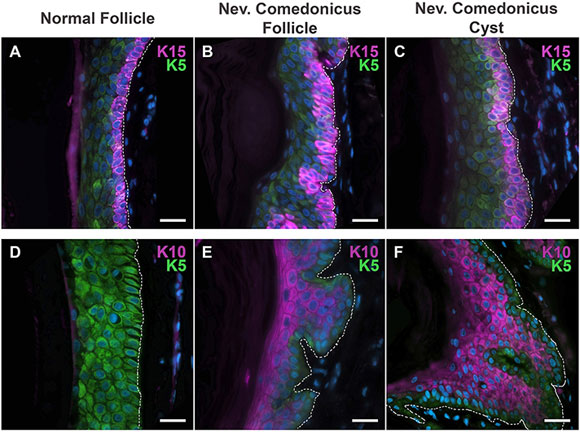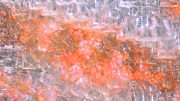
NEK9 mutations cause normal hair follicles to develop blackheads and acne cysts.
New research from Yale University has identified a genetic mutation responsible for the defects that give rise to mild and severe acne, possibly revealing new targets for acne treatment.
In the study, the Yale-led team took blood and tissue samples from three individuals with a rare form of acne known as nevus comedonicus. By sequencing the genomes of the three subjects, the researchers found that mutations within the gene NEK9 cause defects in the hair follicle. “We know that all acne is dependent upon hair follicles,” said senior author Dr. Keith A. Choate, associate professor of dermatology. “We found that in the setting of NEK9 mutation, hair follicles go from producing normal hair to producing giant blackheads and cysts.”
The new understanding provides clues to potentially treating the more common forms of acne. “Before the study, we had no insight that this family of proteins was relevant to acne,” Choate said. “It’s intriguing to think if we were able to develop a drug that targets NEK9, it might have relevance to the treatment of blackheads and acne.”
The study was published May 5 in The American Journal of Human Genetics.
Additional Yale authors include Jonathan Levinsohn, Richard Antaya, and Jennifer McNiff.
Reference: “Somatic Mutations in NEK9 Cause Nevus Comedonicus” by Jonathan L. Levinsohn, Jeffrey L. Sugarman, Yale Center for Mendelian Genomics, Jennifer M. McNiff, Richard J. Antaya and Keith A. Choate, 5 May 2016, American Journal of Human Genetics.
DOI: 10.1016/j.ajhg.2016.03.019
Source: Ziba Kashef, Yale University









Be the first to comment on "Yale Researchers Identify a Genetic Mutation Linked to Acne"